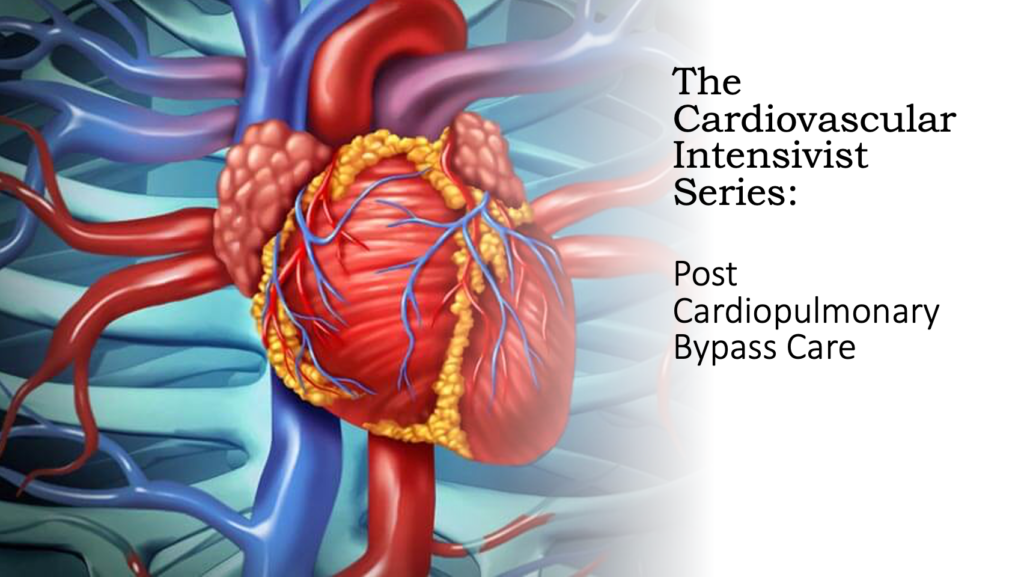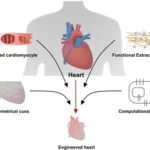Cardiac decompensation is a critical and often life-threatening condition that can occur after cardiac surgery. This term refers to the heart’s inability to maintain adequate circulation, leading to symptoms of heart failure, such as fluid retention, shortness of breath, and low blood pressure. Understanding the mechanisms, risk factors, and strategies for managing cardiac decompensation is essential for improving patient outcomes after cardiac surgery.

What is Cardiac Decompensation?
Cardiac decompensation occurs when the heart is no longer able to pump blood efficiently to meet the body’s demands. After cardiac surgery, the heart’s functionality may be compromised due to various factors, including underlying heart disease, surgical complications, or a body’s response to the procedure itself. In the setting of post-cardiac surgery, decompensation can manifest as a sudden or gradual decline in heart function, leading to the failure of various organ systems.
Types of Cardiac Decompensation
Cardiac decompensation can be classified into two primary types:
- Acute Decompensation: This occurs rapidly and is often triggered by events such as infections, arrhythmias, or myocardial infarctions. It presents with severe symptoms like pulmonary edema and shock.
- Chronic Decompensation: This develops slowly over time and may result from poorly managed heart disease or inadequate recovery from surgery. Symptoms are less severe initially but progress if left untreated.
Causes of Cardiac Decompensation Post-Surgery
Several factors can contribute to the development of cardiac decompensation after cardiac surgery. Understanding these causes can guide treatment and prevention strategies.
1. Impaired Myocardial Function
Post-surgical myocardial dysfunction is a common contributor to cardiac decompensation. During surgery, the heart may experience ischemia or be subjected to periods of low perfusion, leading to decreased contractility after the procedure. In addition, patients with pre-existing coronary artery disease may be more susceptible to this complication.
2. Arrhythmias
The risk of arrhythmias, such as atrial fibrillation, is heightened after cardiac surgery. These arrhythmias can disrupt the heart’s ability to pump effectively, leading to reduced cardiac output and exacerbating symptoms of decompensation.
3. Fluid Overload
Cardiac surgery often requires the use of intravenous fluids, which can result in fluid overload if not managed carefully. Excessive fluid in the body can worsen heart failure symptoms, leading to pulmonary congestion, edema, and decreased oxygenation.
4. Infections and Sepsis
Infections, particularly those of the respiratory or urinary systems, are common after surgery and can exacerbate cardiac decompensation. Sepsis increases the workload on the heart and leads to systemic inflammation, further deteriorating cardiac function.
5. Hemodynamic Instability
Changes in blood pressure, whether too high or too low, can stress the heart and contribute to decompensation. Hypotension following surgery is a significant risk factor, as it can result in inadequate perfusion of vital organs.
Symptoms of Cardiac Decompensation Post-Surgery
Symptoms of cardiac decompensation vary depending on the severity of the condition but often include:
- Shortness of Breath: Difficulty breathing, especially when lying down, is a hallmark sign of heart failure.
- Swelling: Fluid retention causes swelling in the legs, abdomen, and lungs, often leading to significant discomfort.
- Fatigue: Decreased cardiac output results in reduced oxygen delivery to tissues, causing fatigue and weakness.
- Hypotension: Low blood pressure may occur as the heart struggles to pump blood effectively.
- Cyanosis: A bluish tint to the skin, particularly around the lips and extremities, is a sign of inadequate oxygenation.
Managing Cardiac Decompensation After Surgery
Timely and appropriate management is crucial to improving the prognosis of patients experiencing cardiac decompensation. The approach often includes a combination of medical interventions, lifestyle modifications, and ongoing monitoring.
1. Medication Management
Pharmacologic treatments are the cornerstone of managing cardiac decompensation. Common medications include:
- Diuretics to reduce fluid overload.
- Inotropes to improve myocardial contractility and support heart function.
- Vasodilators to reduce afterload and improve cardiac output.
- Anticoagulants to prevent thromboembolic events, particularly in patients with arrhythmias.
2. Fluid Management
Proper fluid management is essential in preventing fluid overload, which can exacerbate heart failure symptoms. Intravenous fluids should be carefully monitored, and diuretics may be used to facilitate fluid elimination.
3. Invasive Monitoring
In some cases, invasive monitoring techniques may be required to assess the patient’s cardiac function more accurately. These techniques can include the use of pulmonary artery catheters to measure hemodynamic parameters and guide treatment decisions.
4. Mechanical Support Devices
For severe cases of cardiac decompensation, mechanical devices such as intra-aortic balloon pumps (IABP) or ventricular assist devices (VAD) may be used to support the heart until it can recover. These devices help to improve circulation and reduce the workload on the heart.
5. Surgical Interventions
In cases where the decompensation is caused by a specific complication, such as a blocked coronary artery or valve dysfunction, additional surgery may be necessary to address the underlying issue.
6. Post-Operative Care and Rehabilitation
Post-surgical rehabilitation programs can help patients regain strength and improve their cardiovascular function. This may involve exercise therapy, nutritional counseling, and psychological support to ensure a full recovery and prevent future episodes of decompensation.
Preventing Cardiac Decompensation After Cardiac Surgery
Preventing cardiac decompensation post-surgery involves careful monitoring, early identification of risk factors, and targeted interventions. Some preventative measures include:
- Optimizing Preoperative Care: Addressing any underlying heart conditions, managing blood pressure, and controlling diabetes can help reduce the risk of decompensation.
- Monitoring for Arrhythmias: Continuous ECG monitoring and the use of anti-arrhythmic medications can help prevent atrial fibrillation and other arrhythmias.
- Careful Fluid Management: Ensuring that patients are neither over- nor under-hydrated can help prevent fluid retention and its associated complications.
- Infection Control: Implementing rigorous infection prevention protocols and promptly treating any infections that arise can reduce the risk of worsening cardiac function.
Prognosis and Long-Term Management
The prognosis for patients experiencing cardiac decompensation post-surgery depends largely on the severity of the condition and the timeliness of interventions. Early detection and aggressive management can significantly improve outcomes. However, patients who experience persistent decompensation may face long-term challenges, requiring ongoing heart failure management and lifestyle adjustments to minimize the risk of future complications.

